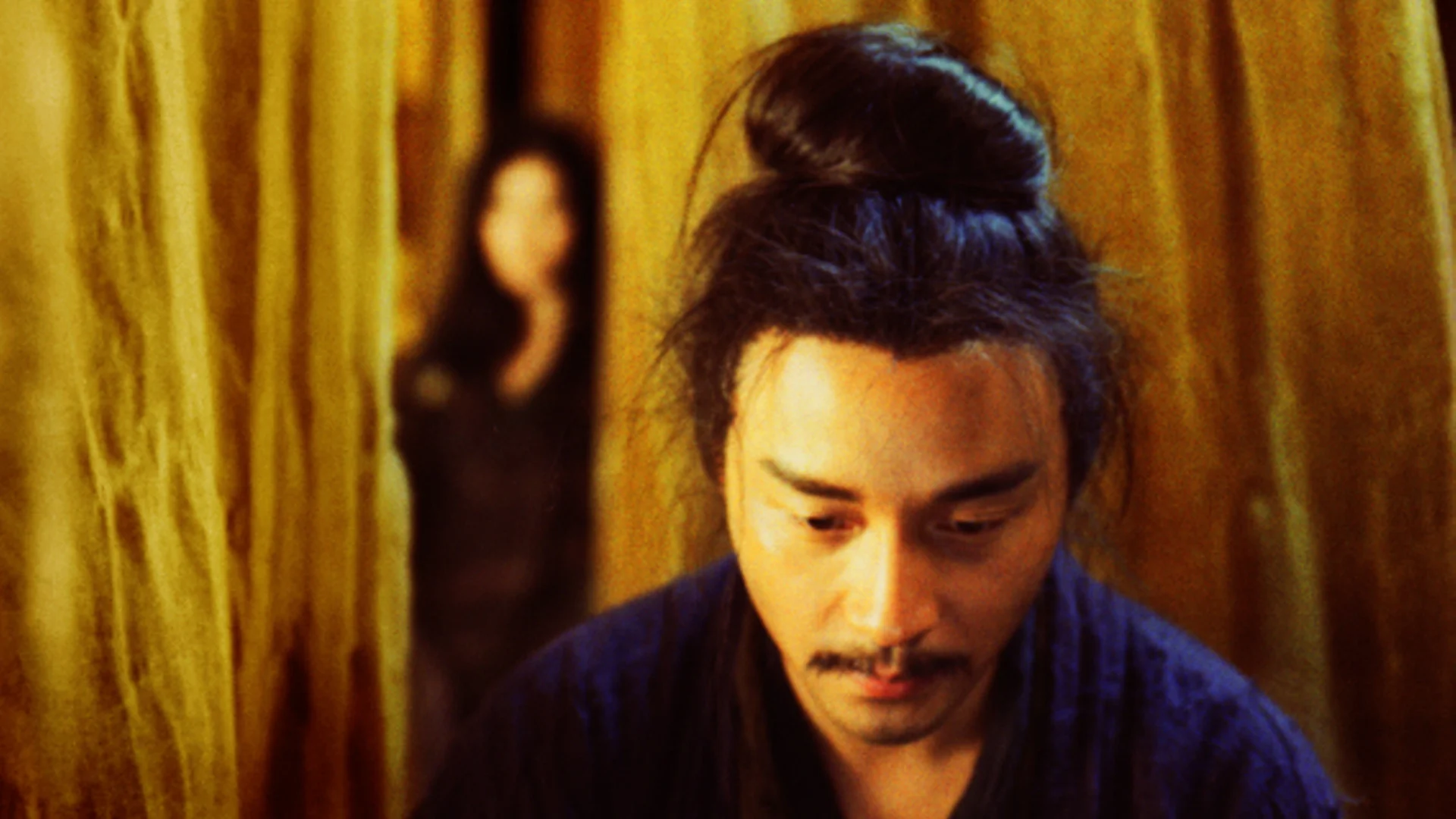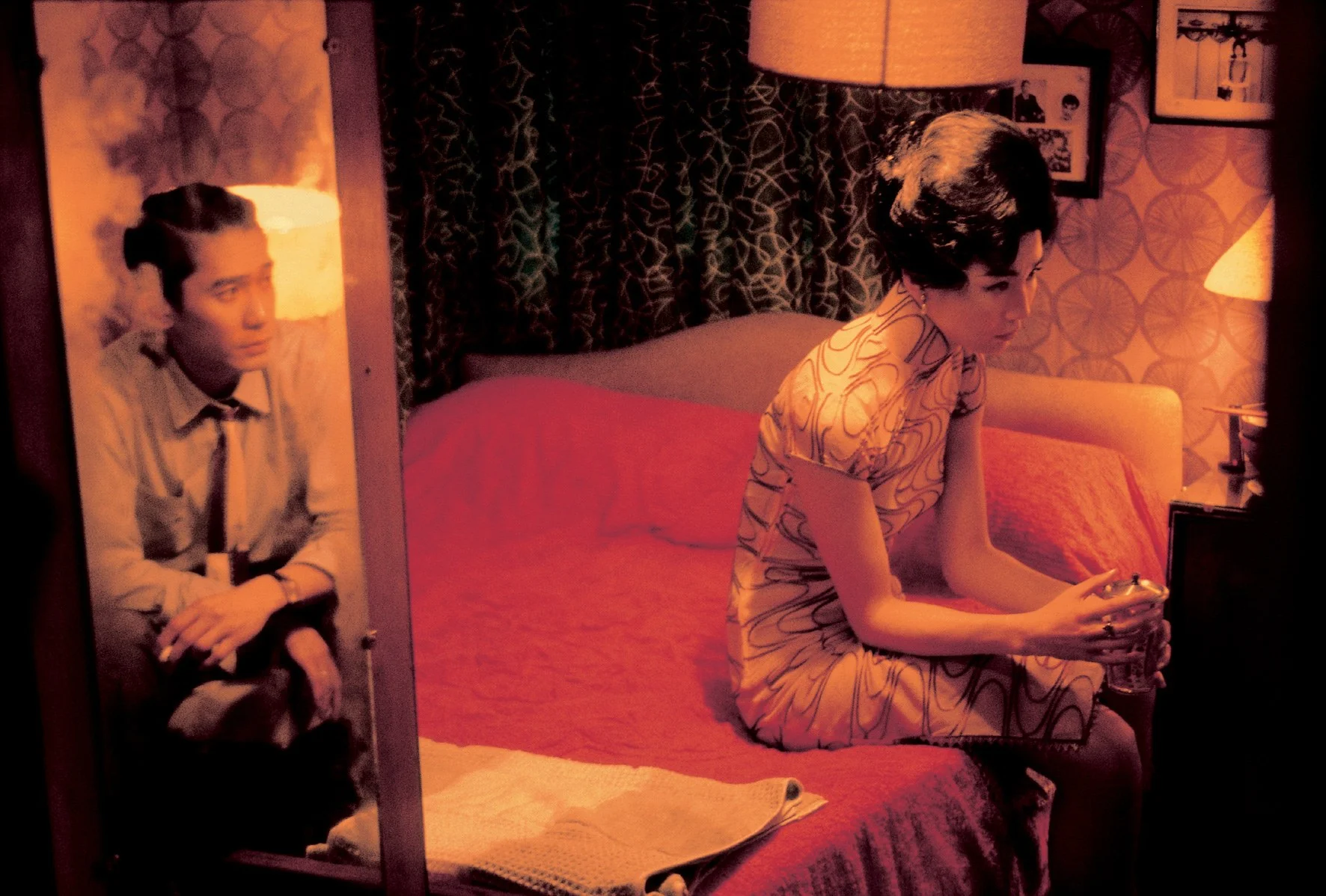
THE GRANDMASTER (2013)
THE GRANDMASTER | Dir. Wong Kar-Wai | 2013 | 130 min
Presented in Mandarin, Cantonese, and Japanese with English subtitles.
Venturing into fresh creative terrain without relinquishing his familiar themes and stylistic flourishes, Hong Kong auteur Wong Kar Wai exceeds expectations with “The Grandmaster,” fashioning a 1930s action saga into a refined piece of commercial filmmaking. Boasting one of the most propulsive yet ethereal realizations of authentic martial arts onscreen, as well as a merging of physicality and philosophy not attained in Chinese cinema since King Hu’s masterpieces, the hotly anticipated pic is sure to win new converts from the genre camp. Wong’s Eurocentric arthouse disciples, however, may not be completely in tune with the film’s more traditional storytelling and occasionally long-winded technical exposition.
With a first-rate production package and glamorous casting, notably the luminous Zhang Ziyi trumping co-star Tony Leung Chiu-wai, Wong’s 10th feature might be his first to win over a mass Chinese audience. Set to make its international bow as the opening-night entry at the Berlin Film Festival, where Wong will serve as jury president, the film has already sold to key markets through Fortissimo Films and the Wild Bunch. It’s set to be released Stateside through Megan Ellison’s Annapurna Pictures, with Ellison credited as a producer on the film.
Five years in the making and reportedly 16 years in gestation, “The Grandmaster” is the latest in a string of period chopsocky films (“Ip Man,” “Ip Man 2,” “The Legend is Born — Ip Man”) centering on the life of the martial-arts master who taught Bruce Lee and popularized the Wing Chun kung fu style around the world. However, Wong’s interpretation stands apart from its predecessors by taking a less conventional biopic route. Offering an eye-opening pageant of martial-arts schools and their radically different exponents, the multistranded but generally linear narrative never dedicates itself entirely to charting Ip’s achievements. Instead, by focusing on his encounters with other fighters, the film arrives at the enlightened realization that there is no single “grandmaster.”
This idea is demonstrated in the opening sequence, when Ip (Leung) remarks: “Kung fu equals two words: horizontal and vertical. The one lying down is out; only the last man standing counts.” Just turning 40 when the film begins in 1936, Ip is an entitled Cantonese gentleman of leisure who lives in Foshan, a popular hub for martial-arts experts from all over the country. This presents numerous opportunities for duels, and the film’s entire first hour feels like a breathless succession of action sequences, accompanied by one-liners of worldly wisdom couched in kung-fu terminology.
Ip’s most significant duel is with Gong Baosen, who has come from Dongbei (then Manchuria) to choose an opponent for one last fight before retirement. Gong’s real intention is to discover young talent and bring it into the limelight, but his match with Ip is not resolved in a way that satisfies Gong’s daughter, Er (Zhang) who is extremely proud of her family’s invincible track record. She tries to teach Ip a lesson, which only brings them closer together.
Something bordering on mutual attraction develops, but the film leaves it oblique, their feelings merely hinted at by the poems they exchange throughout the story. Rather abruptly, the two are separated for more than a decade by war, and narrative interest shifts almost entirely to Er. Driven by the principles of honor that made her challenge Ip, she pits herself against Ma San (Zhang Jin), her father’s defiant disciple, to defend the reputation of the Gong family. Er’s initial pride is offset by a revelation of inner strength when she makes a great sacrifice in order to defeat Ma.
Years of extensive training for this film have enabled the protags to look extremely convincing as masters of their art. Zhang’s moves combine grace and confidence, raising the bar from her perf in “Crouching Tiger, Hidden Dragon,” but even in the dramatic scenes, she’s the center of attention, limning extreme emotional changes as she undergoes a series of tragic upheavals.
By contrast, Leung, the helmer’s frequent muse, lacks his usual intensity here: His Ip Man reveals few distinct characteristics in the early scenes except humility, and shows little emotional variation even as he falls on hard times. Even less satisfyingly handled is the peripheral character of Razor (Chang Chen), a violent and enigmatic drifter whose purpose in the story is so underexplained that he could easily have been excised, despite figuring into one fabulously shot and fought action scene.
Compared with the typically free-flowing structure of Wong’s films, “The Grandmaster” is more straightforward and coherent, with only one (well-placed) flashback. While the fight scenes ensure there’s hardly a lull in the first half, the second half feels hastily stitched together, rendering Ip’s relations with his wife (South Korean thesp Song Hye-kyo) patchy.
Some of the helmer’s artsy trademarks — introspective soliloquies, the sense that the protags are trapped in stasis — have been replaced by ideas more grounded in practical experience, with characters who don’t hesitate to act. In developing a world of strict decorum that is nonetheless predicated on constant competition, Wong clearly benefited from the collaboration of co-scripter Xu Haofeng, here transplanting such elaborate fighting theories from his own films “The Sword Identity” and “Judge Archer” to less cryptic effect.
Having previously grappled with his personal experience as a Shanghai-to-Hong Kong emigre, the filmmaker here applies that theme to a broad historical canvas that deals with the Chinese diaspora and its impact on national identity and the continuity of cultural heritage. Even as the last quarter is suffused with a languid melancholy and heartbreaking loneliness that recalls “In the Mood for Love” and “Ashes of Time,” unrequited love is represented in the context of two irreconcilable ways of life — to survive by biding one’s time, or to burn out by living in the moment.
Tech credits are aces, reflecting a stately, unified aesthetic with a stark palette dominated by blacks, whites and grays. Lensers Philippe Le Sourd (“7 Pounds”) and Song Xiaofei (“Design of Death”) accentuate balletic movement in the fight scenes by shooting from a dazzling variety of angles and at different speeds. They also contrast the austere beauty and expansiveness of Dongbei’s snowy outdoors with the Western-influenced opulence of the South, as re-created in production designer William Chang’s deliberately flashy interiors. Shigeru Umebayashi’s sweeping classical score sometimes swells above the action and dwarfs its impact, but the use of regionally specific songs as period markers helps counter that effect. - Variety
Awards (with 53 Wins and 51 Nominations, see the whole list here)
2014 ACADEMY AWARDS, USA - Nominated (Oscar, Best Achievement in Cinematography | Philippe Le Sourd, Best Achievement in Costume Design | William Chang)
2014 BEIJING INTERNATIONAL FILM FESTIVAL - Won (Tiantian Award, Best Director | Kar-Wai Wong, Best Actress | Ziyi Zhang, Best Cinematography | Philippe Le Sourd)
2013 GOLDEN HORSE FILM FESTIVAL - Won (Audience Choice Award, Won (Golden Horse Award, Best Leading Actress | Ziyi Zhang, Best Cinematography | Philippe Le Sourd, Best Visual Effects | Pierre Buffin, Best Art Direction | William Chang, Alfred Yau, Best Makeup & Costume Design | William Chang), Nominated (Golden Horse Award, Best Feature Film, Best Director | Kar-Wai Wong, Best Leading Actor | Tony Chiu-Wai Leung,
Best Action Choreography | Woo-Ping Yuen, Best Film Editing | William Chang, Benjamin Courtines, Best Sound Effects | Robert Mackenzie, Traithep Wongpaiboon)
2013 GOLDEN ROOSTER AWARDS - Won (Golden Rooster, Best Supporting Actor | Qingxiang Wang, Best Art Direction | William Chang, Alfred Yau), Nominated (Golden Rooster, Best Director | Kar-Wai Wong, Best Actress | Ziyi Zhang, Best Sound | Gary Chen (supervising dialogue editor/supervising adr editor))
The Grandmaster is the final work of focus in our MASTERS: WONG KAR-WAI series.




